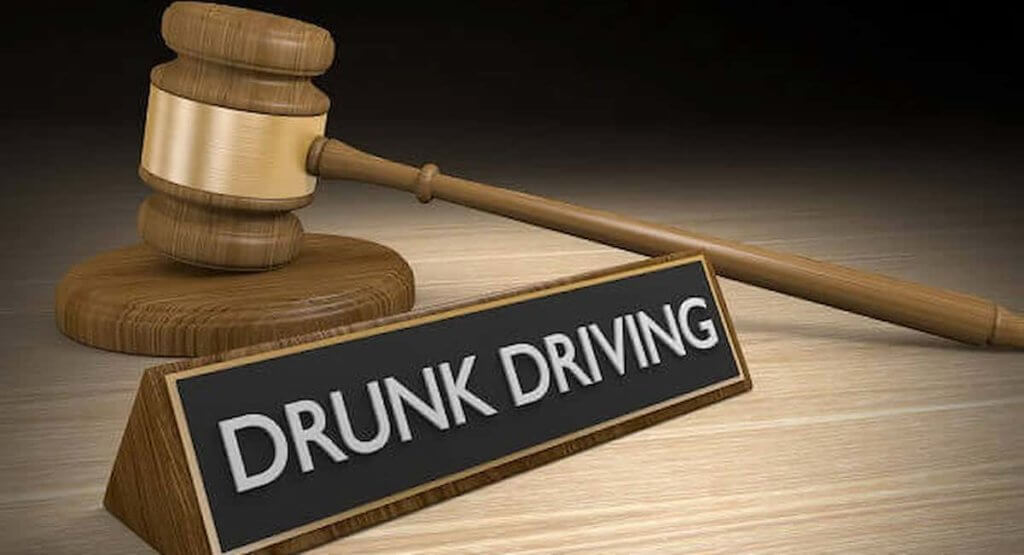Individuals who are arrested for drunk driving face serious penalties if they are convicted. Even a first-offense DUI conviction can cause individuals problems when applying for jobs, undergoing background checks and when seeking coverage from insurance companies.
States have different laws governing the penalties associated with DUI-type offenses. But most include a fine, jail time, restrictions or revocation of a driver’s license and participation in alcohol abuse treatment programs.
First-Offense Penalties
The penalties for a first-time DUI offense vary by state. A conviction is a criminal charge and can result in jail time, fines, license suspension and community service requirements. It may also be accompanied by restitution for victims and alcohol abuse treatment or driver improvement programs.
Jail time for a DUI is rare, but it’s possible depending on your state’s laws and whether there are extenuating circumstances like having children in the vehicle at the time of the incident. Often first-time offenders are sentenced to probation, which includes mandatory participation in alcohol education or treatment programs.
Many states require DUI offenders to install an Ignition Interlock Device (IID) for up to two years if they’re convicted. The device requires you to blow into a breathalyzer every time you want to drive to keep the car from starting. You may also be required to complete an 18-month alcohol education program with individual and group sessions. Upon successful completion, you may be allowed to apply for a restricted license that allows you to drive only to and from work and court-mandated programs.
Second-Offense Penalties
A second offense DUI charge can have devastating consequences on a person’s life. The penalties are typically more severe than a first-offense conviction and can include fines, jail time, suspension of a driver’s license and the installation of an ignition interlock device.
In some states, a second-offense DUI may be considered a felony if there are aggravating circumstances such as an injury-causing accident, a high BAC or driving with a minor child in the vehicle. A felony conviction can result in up to five years in prison, a mandatory driver’s license revocation, and other serious punishment.
In New York, a person with a second DUI, DWI-drug or DWI/combination offense within 10 years is likely to face mandatory minimum penalties including a fine of $1,000, a one-year driver’s license revocation, and a potential sentence up to four years in jail. However, the exact penalties that a person might face will depend on whether the second offense occurred before or after a state’s look-back period and other factors.
Third-Offense Penalties
The state of New York takes repeated drunk driving very seriously, and it has severe penalties for repeat offenders. A third DUI conviction within ten years is considered a Class E felony, and it comes with mandatory license suspension for at least one year, mandatory participation in the Impaired Driver Program (IDP), steep fines, and possible jail time.
The consequences of a third DUI conviction can have a profound effect on a person’s life, including career and financial issues. A felony on one’s record can also affect voting rights, housing opportunities, and educational prospects.
Moreover, the felony can cause a substantial increase in auto insurance premiums. A third DUI conviction is also likely to require installation of an ignition interlock device. If you are facing a third DUI offense, the prompt consultation of an experienced DWAI attorney can be invaluable in achieving a positive outcome to your case. DWAI charges are usually heard in lower-level courts, even though they are felony charges.
Fourth-Offense Penalties
If you have been charged with a DUI for the fourth time, it is likely that the state will consider your case a felony. The penalties that you face for a fourth-offense conviction can be severe, including jail time and fines that can cost tens of thousands of dollars.
A DUI charge is based on the belief that you consumed alcohol and it impaired your judgment to the point where you could not operate a vehicle safely. This belief is not based on any tangible evidence, but rather circumstantial evidence that can include the fact that you were sitting in the driver’s seat with the engine running or that your car key was in the ignition.
Having drunk driving charges on your record can impact all aspects of your life, from being able to work and find employment to obtaining housing or even getting insurance. For this reason, it is important to speak with a skilled criminal attorney.
SEE ALSO: Law Firm Chastised for Using OpenAI ChatGPT for Legal Research
Post Disclaimer
The above article is sponsored content any opinions expressed in this article are those of the author and not necessarily reflect the views of CTN News- Chiang Rai Times. For detailed information about sponsored content policy click here.
⚠ Article Disclaimer
The above article is sponsored content any opinions expressed in this article are those of the author and not necessarily reflect the views of CTN News






